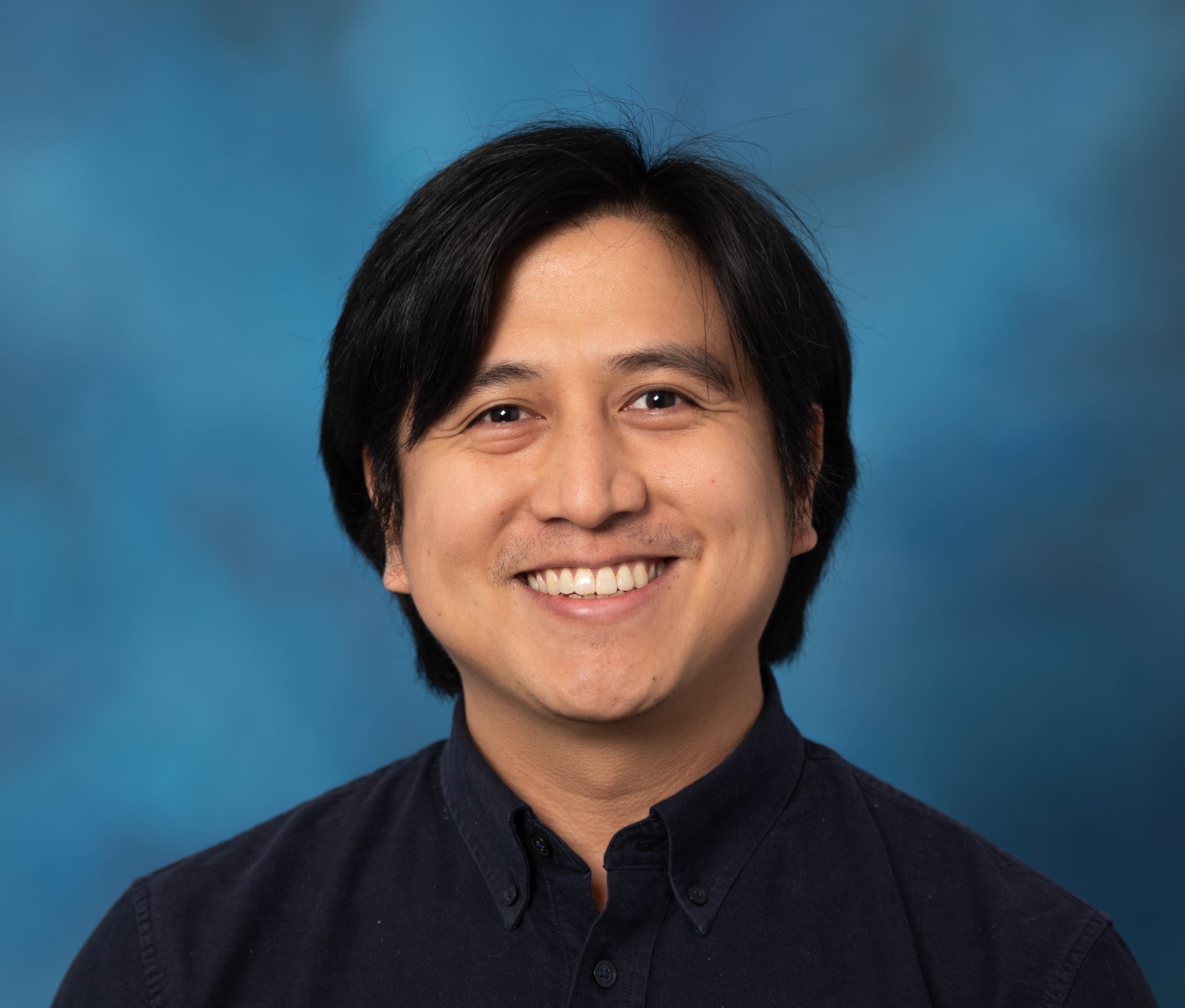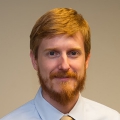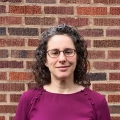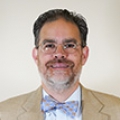- Staff
-
Senior Director of Graduate Advising and Engagement for the Humanities:

Dr. Melissa Lenos
melissalenos@pitt.edu & online scheduler
Melissa Lenos is Senior Director of Graduate Advising and Engagement for the Humanities. Her B.A. in English and M.A. in English, Critical and Cultural Studies are from the University of Pittsburgh and her Ph.D. in Mass Media and Communication is from Temple University. Melissa's primary research areas are narratology and media pedagogy; her work has appeared in Cinema Journal, In Media Res, and Antenna. She is co-author (with Michael Ryan) of An Introduction to Film Analysis: Technique and Meaning in Narrative Film and (with Kevin L. Ferguson) of the forthcoming Generation X: The Popular Culture that Defined the MTV Generation.
Melissa was previously in Kansas City, where she directed a Department of Education Title V grant for a small minority-serving college (and where she was also an Associate Professor of English and served as Director of Liberal Arts & Sciences). Her background includes experiential and project-based learning support. She is available for one-on-one appointments and to visit departments to speak about project opportunities.
Advising, Coaching, & Mentoring
Project Coordinator for Humanities Engage:

Marcus Landas
Marcus Landas is the Project Coordinator for Humanities Engage, where he provides project management, communication, and administrative support. He has over 12 years of experience in project management in the Americas, Oceania, Asia and EMEA. Marcus’ project delivery background spans the fields of Information Technology Service Management, Telecommunications and Healthcare.
He was most recently in Washington D.C., where he managed projects for George Washington University’s School of Medicine and Health Sciences. These projects focused on process optimization within the university’s healthcare system and required extensive collaboration with university resources and their partners.
Feel free to reach out to Marcus if you have any questions regarding Humanities Engage or about future project opportunities.
- Steering Committee
-
The Steering Committtee oversees the grant. It is composed of the PI, the chairs of the Departments of English, History, History of Art and Architecture, and Music, and the Senior Director of Graduate Advising and Engagement, and assisted by the Project Coordinator.
Jonathan Woon - Associate Dean for Graduate Studies
Diego Holstein - Professor and Chair, Department of History
Gayle Rogers - Professor and Chair, Department of English
Adriana Helbig - Associate Professor and Acting Chair, Department of Music
Kirk Savage - Professor and immediate past Chair, Department of History of Art and Architecture
Melissa Lenos - Senior Director of Graduate Advising and Engagement (SDGAE) for the Humanities
- Advisory Board
-
Advisory Board
Caitlin Bruce, Associate Professor of Communication, Humanities Council Delegate
Deborah Danuser, Ph.D. Student, Communication
Lina Dostilio, Associate Vice Chancellor for Community Engagement
David Marshall, Co-Director, Humanities Center
Nicole Mitchell Gannt, William S. Dietrich II Chair of Jazz Studies, Director of Jazz Studies, Department of Music
Ruth Mostern, Associate Professor of History and Director, World History Center
Jerry Paytas, Ph.D., Co-Founder and Vice President, Research & Analytics, Fourth Economy
David Pettersen, Associate Professor of French and of Film and Media Studies, Director of French Graduate Studies
Nelesi Rodriguez, Ph.D. Student, English
Cynthia Sweet, Associate Vice Chancellor for Economic Partnerships
Kornelia Tancheva, Hillman University Librarian and Director of the University Library System, University of Pittsburgh
Alex Taylor, Assistant Professor and Academic Curator, Modern Art and Visual Culture, Department of History of Art and Architecture
- Career Allies
-
Dr. Kirsten Strayer is a visiting Instructor and the Program Coordinator for the ASC film festival and programming SCREENSHOT: Asia. Dr. Strayer received her BA from Georgetown University and her PhD from the University of Pittsburgh. Dr. Strayer has worked on several film festivals and screening programs, including the Silk Screen Film Festival in Pittsburgh and the Imagine Science Film Festival in New York/Abu Dhabi. She also teaches the “Film Festivals and Industry” course in the Pitt Film and Media Studies program.
I finished my PhD in Cambridge in the History and Philosophy of Science (HPS) and then began a post-doc at a research and teaching institute. After seven years in the UK, in the middle of my post-doc, British law made it impossible to continue there. I finished the last year of my post-doc stateside and then struggled to find regular academic work in the Pittsburgh area where we had settled. Although I desperately needed work, I wanted to stay in the academic world, so found a job as a lab technician in the Pitt’s Department of Neurobiology and continued in that line of work about a year later in the Department of Neuroscience for a total of three and a half years. Eventually, through a course I developed for the University Honors College, I found my way into adjunct lecturing in the Pitt HPS department. I did that for six years (with a one-year hiatus during the pandemic when I was cut from teaching).
In 2021, the University Library System (ULS) advertised a new position, History of Science and Medicine Archivist. While I had never worked in a library, I had discipline specific education and work experience. I was hired and before my start date managed to squeeze in some archives courses in Pitt’s Library and Information Science program. I hit the ground running and have been working in the ULS since that time. I love my job and only wish I had discovered the library and archives dimension of my academic interests earlier.
While the coveted tenure-track academic job appears to be the ideal outcome after a PhD, not every person is suited to the lifestyle it requires. It’s necessary to regularly attend academic conferences, develop a network of relationships and nurture them, publish constantly, and serve on a variety of departmental, university, and professional committees. If you don’t like one or more of these you’ll either fail to secure such a position, or if you do, you will be unhappy in it. Academia is not strictly a meritocracy. You need to know people. In my case, the networking component was not a strength and I rather dislike conferences. The PhD provides an opportunity to develop your hard skills, but the soft skills need to be innate. PhD programs don’t provide you with them.
The good news is that those hard skills are eminently useful in other ways. Those can be joined to other strengths and interests in non-tenure track academic work or other adjacent fields. My hand skills and predisposition for organizing things made me useful in a lab, even if underemployed. As an archivist those natural skills plus my doctoral education have proven ideal. While I had used archives throughout my studies and knew that I enjoyed that part of my research, I never even conceived that I might make archival work my sole labor. In hindsight, if I had known myself better at an earlier stage, I might have been able to make better career decisions. However, if I had not followed this meandering course, I would not have been so well-qualified for my current position!
 Dr. Joel Brady is the Manager of the Center for Mentoring. He works on a programmatic level with faculty, administrators, and graduate/professional students throughout the university to foster a culture of mentoring at Pitt, through programs such as the Mentoring Academy (a semester long professional development series for mentors) and Mentee Best Practices. Formerly, as Teaching Consultant and Program Supervisor of the Graduate Student Teaching Initiative for over ten years, he taught the three-credit “University Teaching Practicum,” facilitated a wide variety of pedagogy workshops, and coordinated the University-wide New Teaching Assistant Orientation (NTAO). Additionally, Dr. Brady teaches his own courses through the Departments of Religious Studies, Slavic Languages and Literatures, and History, including “History of Orthodox Christianity,” “Religions of the West,” and “Vampire: Blood and Empire.”
Dr. Joel Brady is the Manager of the Center for Mentoring. He works on a programmatic level with faculty, administrators, and graduate/professional students throughout the university to foster a culture of mentoring at Pitt, through programs such as the Mentoring Academy (a semester long professional development series for mentors) and Mentee Best Practices. Formerly, as Teaching Consultant and Program Supervisor of the Graduate Student Teaching Initiative for over ten years, he taught the three-credit “University Teaching Practicum,” facilitated a wide variety of pedagogy workshops, and coordinated the University-wide New Teaching Assistant Orientation (NTAO). Additionally, Dr. Brady teaches his own courses through the Departments of Religious Studies, Slavic Languages and Literatures, and History, including “History of Orthodox Christianity,” “Religions of the West,” and “Vampire: Blood and Empire.” Dr. Emily Rook-Koepsel is the author of 2019 Democracy and Unity in India: Understanding the All India Phenomenon, 1940-1960 and the forthcoming Modern Indian History. In her role as the Assistant Director for Academic Affairs at the Asian Studies Center at the University of Pittsburgh, Emily works with students, faculty, and staff to build interest and scholarship about Asia, while also teaching in several programs. She builds partnerships, programming, and academic offerings at Pitt in Asian Studies. Before joining the University of Pittsburgh’s Asian Studies Center, Emily was the Wick Cary Assistant Professor of Modern South Asia at the University of Oklahoma. She has taught, presented, and published on issues of gendered citizenship, caste violence, and censorship in India. Her most recent article considers the role social work played in creating and undermining gendered citizenship for women in 1950s India.
Dr. Emily Rook-Koepsel is the author of 2019 Democracy and Unity in India: Understanding the All India Phenomenon, 1940-1960 and the forthcoming Modern Indian History. In her role as the Assistant Director for Academic Affairs at the Asian Studies Center at the University of Pittsburgh, Emily works with students, faculty, and staff to build interest and scholarship about Asia, while also teaching in several programs. She builds partnerships, programming, and academic offerings at Pitt in Asian Studies. Before joining the University of Pittsburgh’s Asian Studies Center, Emily was the Wick Cary Assistant Professor of Modern South Asia at the University of Oklahoma. She has taught, presented, and published on issues of gendered citizenship, caste violence, and censorship in India. Her most recent article considers the role social work played in creating and undermining gendered citizenship for women in 1950s India.
I received my PhD in Religious Studies at Pitt in 2013 and am currently the Assistant Director for the National Consortium for Teaching About Asia (NCTA) which is part of Pitt’s Asian Studies Center. I have been working for the NCTA since 2006 when I originally was the program’s Graduate Student Assistant (GSA) as I was working towards finishing my PhD. When I completed my PhD I was able to shift my position from a GSA-position to a regular staff position. While my job bends towards an administrative skillset, since I am still in the university setting, my PhD definitely has been an asset. I do occasionally teach a class for Religious Studies and I am still included in some of the functions of the department.
In my staff position with the NCTA, I get to work primarily with K-12 educators (primarily in social studies, history, art, language arts, foreign language, and school librarians) in an 11-state region to get them more knowledgeable and comfortable about teaching about East Asia in their classrooms. This includes running a variety of programs, such as evening workshops, weekend mini-courses, and asynchronous book discussion groups. More importantly, I am a co-instructor for a semester-long seminar on East Asia for these K-12 educators.
I have been extremely fortunate to have been a leader on several study tours for K-12 educators to Asia. So far, I have traveled to China, Tibet, Nepal, and twice to Japan with groups of dedicated and enthusiastic teachers. On these study tours, I have usually been the “religion guy” who can help to answer questions of the educators. Although not academically trained as a scholar of the religions of Asia, my PhD in Religious Studies has provided a solid basis for me to learn more about the varieties of Buddhism, Shinto, and Islam in Asia and to make these traditions understandable to K-12 educators. In the summer of 2024 I will be helping to lead a study tour to Central Asia and am currently studying up on the movement of Christian, Buddhist, and Muslim peoples, ideas, and institutions along the Silk Roads.
Working with (and sometimes travelling with) K-12 educators is one of the most rewarding aspects of my job. I have become friends and colleagues of some dedicated educators who are extremely appreciative of the support and opportunities that the NCTA is able to provide for them. The challenges facing these teachers is much different than those faced by college faculty, and I feel that part of my job is to listen to what these teachers need and to provide it to them in the way that they need it.
- NEH Planning Grant Committees
-
The following individuals served as representatives for Humanities Careers, an NEH Planning Grant in 2018-2019. Unless specified otherwise, members are affiliated with the University of Pittsburgh.
Alumni Working Group
Holger Hoock - Chair; PI of "Humanities Careers"
Associate Dean for Graduate Studies and Research, Kenneth P Dietrich School of Arts and Sciences
J. Carroll Amundson Professor of British History, Department of HistoryDon Bialostosky
Professor and Chair, Department of English
Jerome Branche
Professor and Chair, Department of Hispanic Languages & Literatures
Barbara McCloskey
Professor and Chair, Department of the History of Art and Architecture
Vladimir Padunov
Associate Professor, Director of Graduate Studies, Department of Slavic Languages & Literatures
Andrea Paolini
PhD Student, Department of English
Lara Putnam
Professor and Chair, Department of HistoryCurriculum Working Group
Deane L. Root - Chair
Professor and Chair, Department of Music
Tyler Bickford
Associate Professor and DGS, Department of English
Lauren Collister
Director of the Office of Scholarly Communications & Publishing, ULS; Alumna, PhD Program in Linguistics
Michel Gobat
Associate Professor and DGS, Department of History
Randall Halle
Klaus W. Jonas Professor of German Film and Cultural Studies, Department of German, Director of Film and Media Studies
Christina M. Hoenig
Associate Professor and Director of the Graduate Program in Classics, Philosophy and Ancient Science, Department of Classics
Alison Langmead
Clinical Associate Professor and Director, Visual Media Workshop, Department of the History of Art and Architecture
Kirk Savage
Professor, Department of History of Art and Architecture
Nicole Scalissi
PhD Candidate, Department of History of Art and Architecture
Bethany Wade
PhD Candidate, Department of History
Partnership and Public Humanities Working Group
Alex J. Taylor - Co-Chair
Assistant Professor and Academic Curator, Department of the History of Art and ArchitectureRuth Mostern - Co-Chair
Associate Professor, Department of History; Director, World History CenterBen Barson
PhD Candidate, Department of MusicJennifer Boum Make
PhD Candidate, Department of French and Italian (PhD Program in French)Patrick Dowd, Executive Director, Allies for Children, Pittsburgh; Alumnus, PhD Program in History
Shelome Gooden
Associate Professor, Department of LinguisticsAaron Henderson
Associate Professor, Department of Studio ArtsLina Insana
Associate Professor of Italian and Chair, Department of French and Italian Languages and LiteraturesDan Kubis
Associate Director, Humanities Center; Alumnus, PhD Program in EnglishBrenton J. Malin
Associate Professor and DGS, Department of CommunicationMichelle Yingling
Career Consultant, Career ServicesDarlene F. Zellers
Associate Vice Chancellor for Academic Career Development, Health Sciences; Director, Office of Academic Career Development, Health Sciences; Associate Dean for Postdoctoral Affairs, School of Medicine
Additional Members of Planning Committee:
Jonathan Arac, Andrew W. Mellon Chair, Department of English, and Director, Humanities Center
Nathan Urban, Vice Provost for Graduate Studies and Strategic Initiatives
Consultative Committee
Rebecca Bagley
Vice Chancellor for Economic Partnerships
Marc Bermann
Associate Professor and DGS, Department of Anthropology
Susie Chen
PhD candidate, Department of Psychology
Daniele Coen-Pirani
Associate Professor, Department of Economics
Lina Dostilio
Associate Vice-Chancellor for Community Engagement, Center for Urban Education
Tom Golightly
Senior Executive Director of Development, Dietrich School of Arts & Sciences
Joe Horne
Director, Teaching Commons, University Center for Teaching and Learning
Anna Marsland
Professor, Department of Psychology
Carol Mullen
Director of Communication and Undergraduate Recruitment, Dietrich School of Arts & Sciences
Jessica Pickett
Consultant
Rebecca Roadman
Director of Special Projects and Initiatives, Dean's Office, Dietrich School of Arts & SciencesKornelia Tancheva
University Librarian, Director of University Library Services

 Jason Rampelt
Jason Rampelt